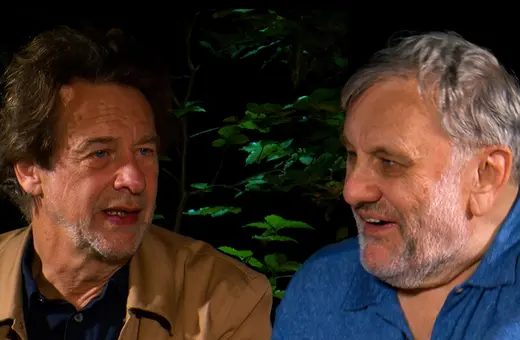In Part II of our interrogation into the shifting sands of global politics, Martin Jacques warns that we are witnessing the inevitable decline of Europe and the US, with China rising to become the next global economic powerhouse.
In Part I, Rana Mitter argued that this is sill very much a story of US dominance, but here, however, Jacques speaks to the IAI about the future of global politics and why we mustn’t use a Western template to think about what China is going to be like. Jacques is a journalist and academic who founded the influential think-tank Demos. His 2009 book, When China Ruled the World, has helped shape debate on China’s future role on the world stage.
China has been reluctant to comment on recent events in Russia and the Middle East. It appears to be more concerned with internal affairs than intervening in global ones, so how can it truly be called a superpower? Isn’t it the case that all eyes turn to the US when major events like those in Russia and the Middle East occur?
I don’t think it is a superpower. I think that China is not really a global power in the way that say, the United States is, because its claim to be a global power is essentially economic. This year China has overtaken the United States as the largest economy in the world, and it’s a huge trader, so it’s becoming a very important exporter of capital. When you go to China, you will never think of the world in the same way again. Every city you go to is looking modern because the economic transformation has been very broadly based. Economically, it is a global power; I don’t think there’s any argument there at all.
But when it comes to politics and having a voice on global issues, China is still very restrained. There are two reasons for that. One is because the country is still in the process of economic take-off. The emergence into broader powers of countries like the States and, before that, Britain, only comes after their economic take-off phase. China has definitely not reached that point yet – most of the population still lives in the countryside.
Secondly, we need to be very wary of using a Western template to think about what China is going to be like. It’s wrong to do that because we’re talking about very different historical and cultural coordinates. There are two interesting things about this: one is that, unlike the West, the Chinese have never really had the same tradition of colonialism and expansionism, or the feeling that because they’ve inherited so much, they’ve got a right to tell everyone what to do. The other thing is that if you’re governing the country which has a fifth of the world’s population, then governance is a totally different challenge. The priority for Chinese rulers has always been order and domestic stability.
But don’t you think it will need a more global outlook to overtake the US as the most dominant power in the world?
Over time China will develop a view about the world, its place in the world, and what its interests are, just as Britain did following the industrial revolution.















Join the conversation